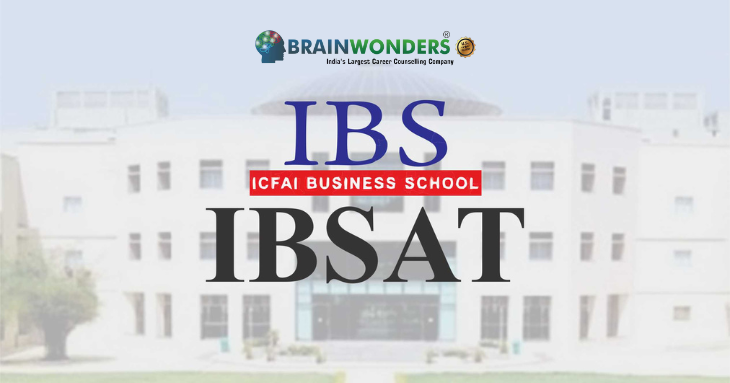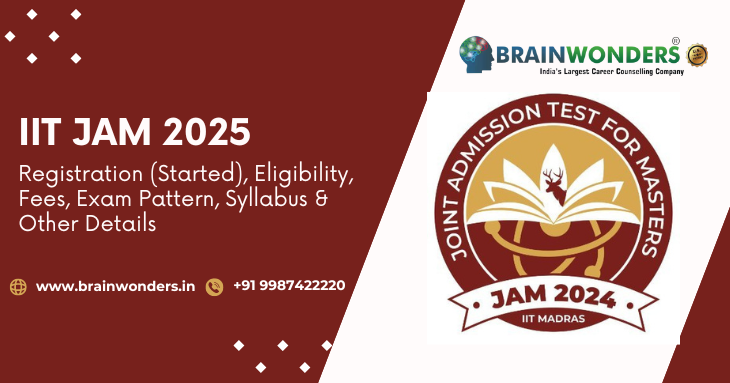

Your Brainwonders result to will help you identify the right exams you need to be ready for!
Bank on your strengths and learning style to ace the exams on your path to your dream career
Blog
19 January,2024 | By Brainwonders

The National Testing Agency (NTA) administers the NEET (National Eligibility cum Entrance Test), formerly AIPMT. NEET has emerged as the primary entrance exam for medical science courses in India, with numerous candidates applying each year to pursue admission in various fields of medicine. However, the competition has gotten tougher every year as a result of the limited number of seats available in these colleges, making it more difficult.
In recent times, candidates have become increasingly ambitious, and some begin considering their options even before taking the NEET exam in case things don't go as planned. The question of what to do after NEET or after receiving the NEET results can be nerve-wracking. In 2020, the NEET exam received almost 16 lakh applications, with candidates vying for admission to around 75,893 MBBS seats, 26,693 BDS seats, and 52,700 AYUSH seats provided by both government and private institutions across the country. In contrast, NEET 2022 saw 1,614,777 registrations.
Following the conclusion of the NEET exam, candidates often search for answers to questions like:
These are a few critical questions that candidates are interested in. To address these queries, we at BYJU’S have created a detailed guide to help aspiring medical students understand the path to straightforwardly pursuing a career in medicine. First, let's explore some essential aspects related to NEET.
The regulatory board administers the NEET exam, and interested candidates can find the application form on the official website to fill out and submit. Upon successful registration, candidates can download their NEET Admit Card.
In addition to being a national-level exam, NEET is now a mandatory requirement for aspirants who wish to pursue MBBS courses in foreign countries. Moreover, NEET has also become a mandatory exam for candidates seeking admission to AYUSH courses in India, including:
Bachelor of Science in Veterinary Science has 15% of the seats reserved for government institutes.
Due to the intense competition for not just the traditional medical courses but also other related courses, candidates must clearly understand their options after the NEET exam.
It is common for candidates to begin by checking the answer keys and calculating their NEET scores. They may use both official and unofficial means to do this. The NTA officially releases answer keys and uploads OMR sheets for candidates to tally their scores. If any discrepancies arise, candidates can challenge them, and appropriate action will be taken after review. The NEET results are usually announced a few weeks after the exam.
Candidates can also use the NEET Rank Predictor tool to estimate their ranking and predict the possible colleges they may be offered during the counselling process, which begins about a week after the result declaration. Keep reading for more comprehensive details.
After the announcement of NEET results, candidates can calculate their NEET scores and estimate their rank using the score. With this tentative ranking and score, candidates can have a rough idea of which medical and dental universities they may be able to gain admission to. This estimation is based on the trends from previous years' NEET admissions, and while it may not be entirely accurate, it serves its purpose. Even though the official answer keys for NEET are generally released after some time, candidates can still search for answer keys online to obtain an approximate score, which can help predict their rank.
After the NEET 2024 results are announced, the next step for candidates is the counselling process. Only those who have cleared the NEET cutoff set by the NTA are eligible for counselling. The cutoff score is required to qualify for the NEET exam. The qualifying percentile for different categories is as follows:
In summary, the counselling process for NEET 2024 exam candidates will only be available to those who have cleared the NEET cutoff score set by the NTA. The required percentile varies depending on the candidate's category.
| Careers | Average Salary |
| Medical Doctor | ₹50,000-120,000 |
| Dentistry (BDS) | ₹25,000-50,000 |
| Nursing | ₹18,000-40,000 |
| Physiotherapist | ₹20,000-70,000 |
| Unani Medicine and Surgery | ₹30,000-58,000 |
The question of "What after NEET" remains a persistent dilemma for candidates at every step of the admission process, from filling out the application form to attending multiple counselling sessions. Candidates may feel uncertain about their next steps with so many options available. Despite having access to relevant information through counselling sessions, such as the number of available seats and eligibility criteria, it can still be challenging to comprehend the process fully. To learn more about navigating the post-NEET admission process, read for a comprehensive overview.
| Name Of The Counselling Authority | Seat (type) |
| DGHS |
|
| State Counselling Authority |
|
The NEET AIQ program comprises 15% of MBBS/BDS seats in all government dental and medical colleges throughout India, except those in Jammu and Kashmir state. All candidates who pass the NEET exam are eligible to apply for these seats, except for J&K candidates who still need to submit a self-declaration form during the NEET application process. Therefore, candidates from any state can apply for government institutions in different states, including their own, under AIQ.
To apply for AIQ counselling, candidates must provide relevant details in the application form issued by the DGHS (Directorate General of Health Services) representing the Medical Counselling Committee (MCC). The tentative time frame for NEET AIQ counselling is expected to be announced soon.
Stay updated for the release of NEET Counselling registration and be among the first to enrol.
Fifteen per cent of MBBS/BDS seats from all government dental and medical colleges across India except for Jammu and Kashmir state are available for qualified candidates for the NEET exam. Candidates from J&K cannot apply except those who have submitted a self-declaration form during the NEET application form-filling process. Candidates from any state can still seek admission in government institutes of different states, including their state, under AIQ. To apply under AIQ counselling, one must provide details in the application form as and when issued by the DGHS (Directorate General of Health Services) representing the Medical Counselling Committee (MCC). The tentative time frame for AIQ counselling for NEET will take place soon.
All Central and Deemed Universities seats are available to candidates who have qualified for the NEET exam. The different universities covered under central universities are Banaras Hindu University (BHU), Aligarh Muslim University (AMU), colleges affiliated with Delhi University (DU), and Jamia Milia Islamia (JMI). DGHS is the counselling authority for Central and Deemed Universities, and candidates must fill out an application form for Deemed and Central Universities' counselling when the DGHS issues it.
Counselling for successful candidates for seats under 15% All India Quota and 100%, including 85% State quota seats of Central Institutions (ABVIMS & RML Hospital/ESIC/VMMC & Safdarjung Hospital)/ Central Universities (including BHU/ DU/ AMU)/ JIPMER/ AIIMS and Deemed Universities, will be supervised by the MCC/DGHS for Undergraduate MBBS and BDS courses. MCC only conducts registration for AFMC and passes the data of registered candidates to AFMC Authorities for admission.
After handing over 15% of seats in AIQ, the remaining 85% of seats in government institutes for dental and medical courses come under the state quota seats. Typically, candidates from the respective states can occupy these seats. To apply for state quota seats in their corresponding state government colleges, candidates must fill in the form issued by their corresponding state counselling officials. Some states may commence the application process before NEET and release the NEET state quota counselling applications once the results are declared.
Private colleges offer more flexibility to students regarding domicile criteria, enabling them to apply under this category in several states they prefer. All the qualifying candidates of NEET exams are eligible to apply for seats in private institutes (dental and medical) nationwide regardless of their state of residence or domicile. This can be achieved by filling out application forms from corresponding state counselling officials. However, some private colleges lock a certain number of seats for the state quota that exclusively belongs to applicants in particular states. The authorities for state counselling and counselling for private colleges are the same. Some states commence applying for state counselling (private colleges) before the NEET results are declared, and the direct links for applying to private colleges for medical courses shall be given.
In addition to the seats mentioned previously, other seats are available, including seats in AFMC (Pune) and seats reserved for Insured persons (IP) wards in ESIC colleges. The counselling for MBBS admissions into AFMC, Pune, and for all the IP wards that apply to ESIC colleges is conducted by DGHS. Candidates eligible and interested in these seats must apply for the corresponding counselling process separately through the official website of DGHS.
Candidates can refer to the eligibility criteria for AFMC, Pune, and IP wards seats in ESIC provided below.
| Seat type | Eligibility Criteria |
| AFMC, Pune | AFMC shortlists candidates after it reviews applications through the DGHS application process, after which it conducts screening rounds for candidates to take up admissions. Eligibility criteria – height, age limit criteria etc. |
| IP Wards seats in ESIC | The DGHS has a different application form for this, hence the admission process. But basic eligibility criteria need one of the parents to be an Insured Person as specified by the ESI Act, constituting continuous insurable employment for 3, 4 or 5 years as of 2019, 1st January. |
The NEET counselling process answers the question, "What after NEET?" After the results are announced, eligible candidates can obtain the appropriate counselling application form and complete the necessary formalities, with updates from the counselling officials. However, it is recommended to have a basic understanding of the process before it begins. Therefore, we provide an overview of the events during the counselling process to assist candidates in better understanding the "what after NEET" question.
| Counselling type | Counselling Authority | Procedure |
| AIQ Seats Counselling | DGHS | The 15% AIQ has two rounds of counselling for MBBS/BDS seats. Post the conclusion of the second round, if any seat remains, it is shifted to the states. In the past, nearly 4591 BDS/MBBS seats in nearly 235 dental and medical institutes were available under the 15% All India Quota. |
| Central/Deemed Universities | DGHS | Two rounds of counselling for these universities succeeded by a mop-up round |
| AFMC and IP Wards for ESIC counselling | DGHS | Eligible and interested candidates for these seats are required to register for them through the DGHS portal |
| State Quota Counselling | State counselling authorities | Comprises 85% of the state quota seats in their respective states, typically locked for candidates possessing domicile of states. Counselling is carried out in two or three rounds and a mop-up round. |
| Private College counselling | State counselling authorities | Counselling is carried out in 3-4 rounds, along with a mop-up round |
After candidates have applied through one of the counselling types mentioned above, the counselling officials will release a merit list, and state ranks for the eligible candidates. In some cases, state counselling officials may release two sets of NEET merit lists - one for private and one for government medical colleges. Candidates must know the necessary documents to carry during the counselling sessions. Below is a list of the required documents.
The table presented below lists the state-wise admission process for NEET exams.
| Andhra Pradesh MBBS Admissions | Assam MBBS Admissions |
| Bihar MBBS Admissions | Chandigarh MBBS Admissions |
| Chattisgarh MBBS Admissions | DU MBBS Admissions |
| Goa MBBS Admissions | Gujarat MBBS Admissions |
| Haryana MBBS Admissions | HP MBBS Admissions |
| IPU MBBS Admissions | J&K MBBS Admissions |
| Jharkhand MBBS Admissions | Karnataka MBBS Admissions |
| Kerala MBBS Admissions | MP MBBS Admissions |
| Maharashtra MBBS Admissions | Meghalaya MBBS Admissions |
| Manipur MBBS Admissions | Odisha MBBS Admissions |
| Punjab MBBS Admissions | Rajasthan MBBS Admissions |
| Telangana MBBS Admissions | Tripura MBBS Admissions |
| Tamil Nadu MBBS Admissions | UP MBBS Admissions |
| Uttarakhand MBBS Admissions | West Bengal MBBS Admissions |
It is common for candidates not to clear the NEET exam on their first attempt, but this should encourage them to pursue their dreams. There are no restrictions on the number of attempts or upper age limit for the NEET exam. Candidates can always take the exam again with better preparation and confidence.
If one fails to secure a seat in MBBS, they can reappear for NEET exams. Additionally, the NEET score is applicable not only for MBBS/BDS courses but also for other courses such as BAMS, BYMS, BHMS, BSBS, and veterinary sciences. One can pursue several allied medical fields without appearing for NEET, such as Nursing, Clinical Psychology, Optometry, Medical Lab Technologist, Occupational therapy, Biotechnology, Biomedical Engineering, and more.
Plenty of opportunities are available for those interested in medicine, and with the advancement of science and technology, more opportunities are likely to emerge. Therefore, candidates need not worry about their career options if their passion lies in medicine. Good luck!
Now you have a clear pathway about how to go about your NEET exam to pursue your dream of becoming a doctor.
Suppose you are still trying to figure out your career. In that case, Brainwonders Career Counselling can help you make an informed decision about your career, whether it's pursuing a medical career through NEET or any other path you have in mind. With our experienced counsellors, you can explore the right curriculum, familiarise yourself with the admission process and start planning for success.
Ans: The required marks and rank may differ across states. Generally, a score of 475 or above in the general category is considered safe for securing seats in BAMS.
Ans: Based on previous trends, candidates in the General category must secure a minimum 50th percentile and obtain 550+ marks, while General-PH candidates must secure the 45th percentile. Candidates from SC/OBC/ST categories must obtain the 40th percentile to qualify. To secure admissions in government medical colleges under the unreserved category, a minimum of 575-600 marks is required. However, these figures may vary based on the NEET cutoff announced for the year.
Ans: To be eligible to appear for the NEET exam, candidates must have a minimum aggregate of 50% in Physics, Chemistry, and Biology in class 12 for those in the unreserved category. Physically handicapped (PH) candidates must have a minimum of 45%, while candidates belonging to the reserved category, including PH, require a minimum of 40%.
Q4: How many marks are needed to qualify for NEET?
Ans: There are two main aspects to consider regarding NEET exams: first is to obtain marks that clear the cutoff, and the second is to secure seats in various colleges, with government colleges usually having a higher cutoff range. NTA announces the NEET cutoff annually, based on which candidates qualify for the exam and can proceed with the counselling processes.
Q5: What is the neet state quota eligibility?
Ans: The eligibility for the neet state quota is given below:
Q6: What is the physically handicapped criteria in neet?
Ans: The eligibility criteria for disabled people are 5% in all India Quota Seats. Also, need a Disability Certificate to get admission in physically handicapped criteria in need.
Q7: What is the NEET cut-off 2024 for MBBS government college?
Ans: The NEET cutt-off for MBBS to take admission for government colleges is given below:
Q8: How many seats are there in NEET?
Answer: The total seat available in NEET is approximately 109,048 for MBBS through various medical colleges.
Q9: How many times i can give neet?
Ans: There is no limit or age limit for NEET. You can give the NEET exam multiple times without any restrictions.
Your Brainwonders result to will help you identify the right exams you need to be ready for!
,_Syllabus,_Pattern,_Old_Question_Papers.png)

